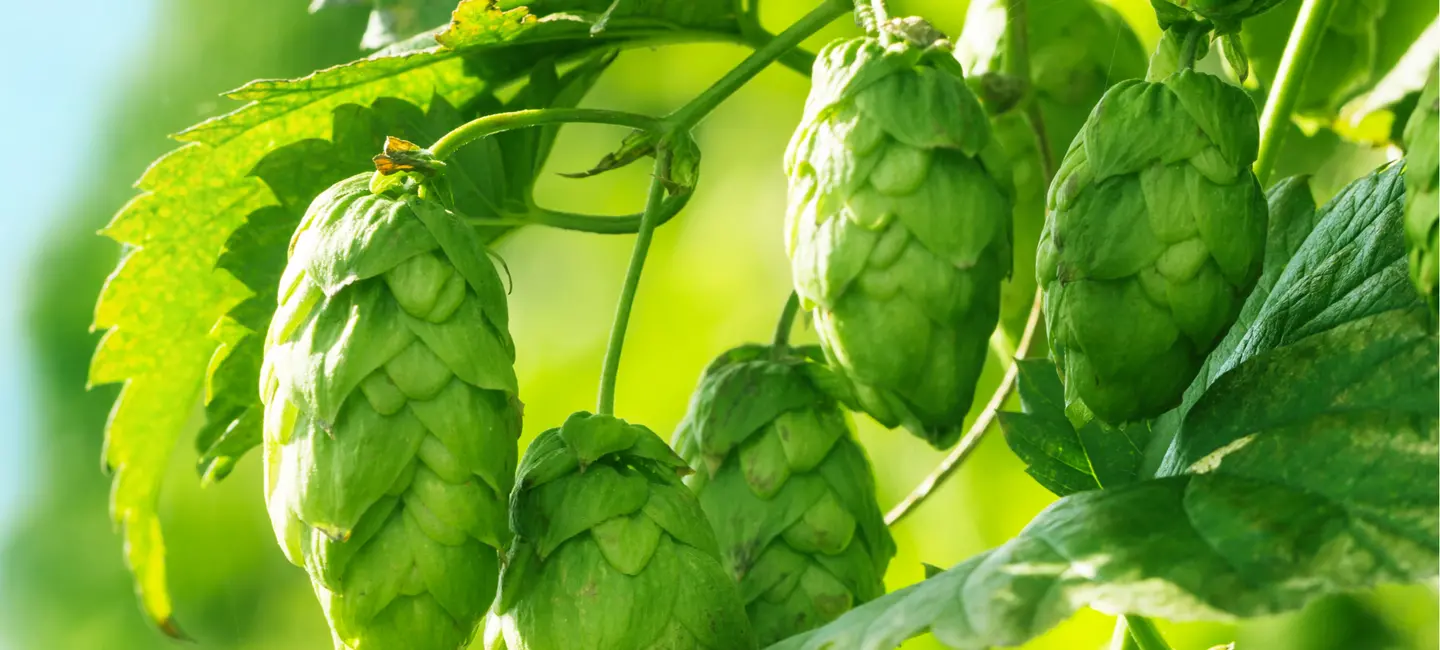
Hops are the dried, flowering parts of the hop plant (Humulus lupulus), commonly used in brewing beer. They have limited evidence of health benefits.
The term "hops" comes from the Anglo-Saxon term "hoppan", which means "to climb." Hops contain many chemicals, including bitter acids, which contribute to its bitter flavor. Some chemicals in hops seem to act similarly to the hormone estrogen and some seem to cause sleepiness.
People commonly use hops for anxiety, sleep disorders, restlessness, symptoms of menopause, and many other conditions, but there is no good scientific evidence to support these uses.
Is It Effective?
There is interest in using hops for a number of purposes, but there isn't enough reliable information to say whether it might be helpful.
Is it Safe?
When taken by mouth:
Hops are commonly consumed in foods. Hops extracts and hops bitter acids are possibly safe when used short-term. Hops extracts have been used safely in doses of up to 300 mg daily for up to 3 months. Hops bitter acids have been used safely in doses of 35 mg daily for 3 months. Hops might cause dizziness and sleepiness in some people.
Special Precautions & Warnings:
Pregnancy and breast-feeding: There isn't enough reliable information to know if hops are safe to use when pregnant or breast-feeding. Stay on the safe side and avoid use.
Hormone sensitive cancers and conditions: Some chemicals in hops act like the hormone estrogen. People who have conditions that are sensitive to estrogen should use caution when taking hops. Some of these conditions include breast cancer and endometriosis.
Surgery: Hops might cause too much sleepiness when combined with anesthesia and other medications during and after surgical procedures. Stop taking hops at least 2 weeks before a scheduled surgery.
Estrogens
Interaction Rating=Moderate Be cautious with this combination.
Hops might have some of the same effects as estrogen. Taking hops along with estrogen might decrease the effects of estrogen.
Medications changed by the liver (Cytochrome P450 1A2 (CYP1A2) substrates)
Interaction Rating=Moderate Be cautious with this combination.
Some medications are changed and broken down by the liver. Hops might change how quickly the liver breaks down these medications. This could change the effects and side effects of these medications.
Medications changed by the liver (Cytochrome P450 3A4 (CYP3A4) substrates)
Interaction Rating=Moderate Be cautious with this combination.
Some medications are changed and broken down by the liver. Hops might change how quickly the liver breaks down these medications. This could change the effects and side effects of these medications.
Sedative medications (CNS depressants)
Interaction Rating=Moderate Be cautious with this combination.
Hops might cause sleepiness and slowed breathing. Some medications, called sedatives, can also cause sleepiness and slowed breathing. Taking hops with sedative medications might cause breathing problems and/or too much sleepiness.
Herbs and supplements with sedative properties: Hops might cause sleepiness and slowed breathing. Taking it along with other supplements with similar effects might cause too much sleepiness and/or slowed breathing in some people. Examples of supplements with this effect include kava, L-tryptophan, melatonin, and valerian.
Herbs that might act like estrogen: Hops might have the same effects as estrogen. Using it along with other supplements with similar effects might increase estrogen-like effects and side effects. Examples of supplements with this effect include black cohosh, kudzu, peony, and red clover.
There are no known interactions with foods.
Hops are available in many different types of products, including beverages, tablets, capsules, creams, and gels. There isn't enough reliable information to know what an appropriate dose of hops might be. Keep in mind that natural products are not always necessarily safe and dosages can be important. Be sure to follow relevant directions on product labels and consult a healthcare professional before using.
Asperge Sauvage, Common Hops, Couleuvrée, Couleuvrée Septentrionale, European Hops, Hop, Hop Strobile, Hopfenzapfen, Houblon, Humulus lupulus, Lupuli Strobulus, Lupulin, Lúpulo, Pi Jiu Hua, Salsepareille Indigène, Vigne du Nord.
Information on this website is for informational use only and is not intended to replace professional medical advice, diagnosis, or treatment. While evidence-based, it is not guaranteed to be error-free and is not intended to meet any particular user’s needs or requirements or to cover all possible uses, safety concerns, interactions, outcomes, or adverse effects. Always check with your doctor or other medical professional before making healthcare decisions (including taking any medication) and do not delay or disregard seeking medical advice or treatment based on any information displayed on this website.
© TRC Healthcare 2024. All rights reserved. Use and/or distribution is permitted only pursuant to a valid license or other permission from TRC Healthcare.
